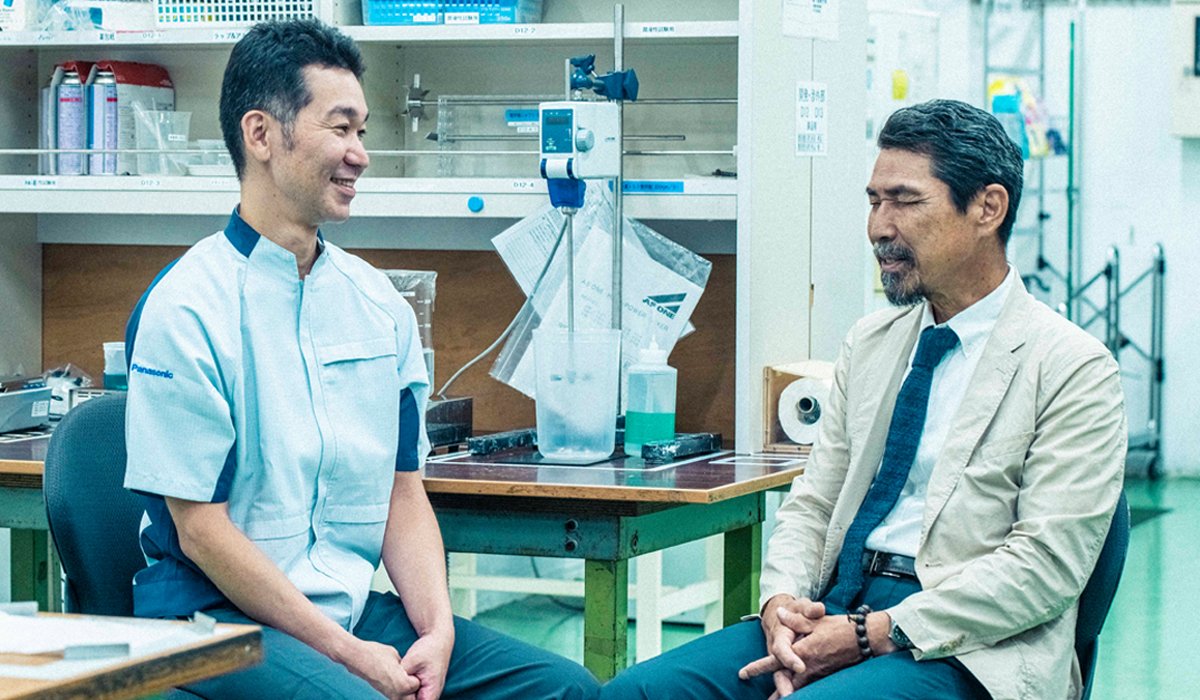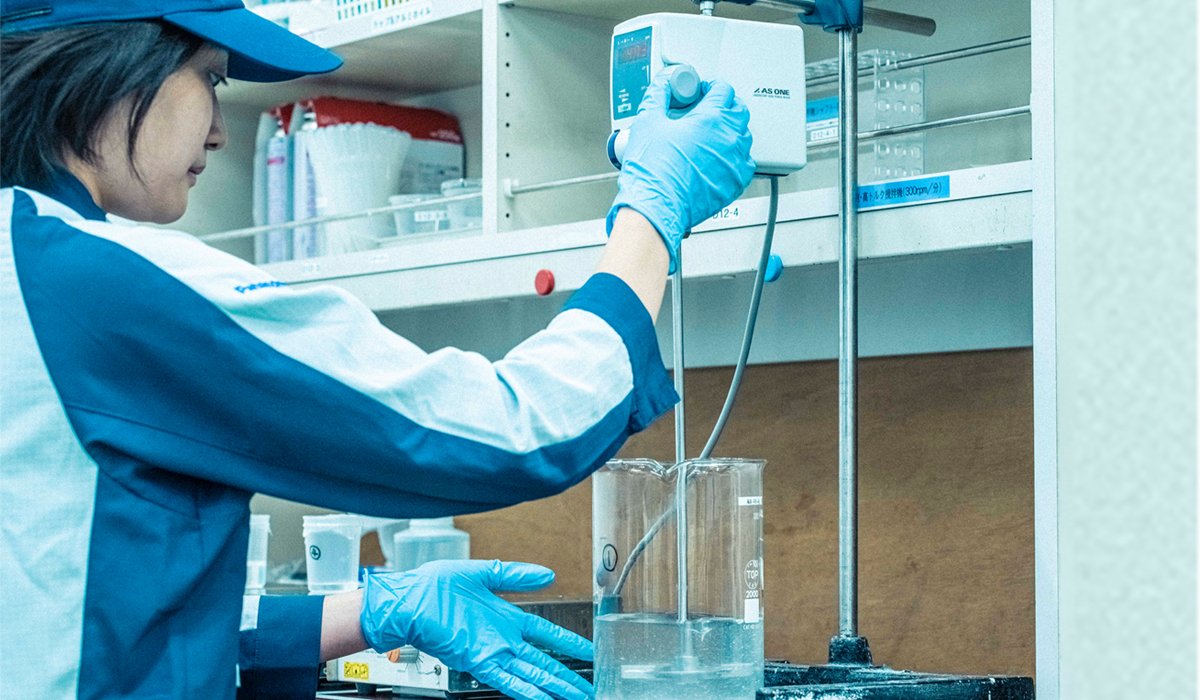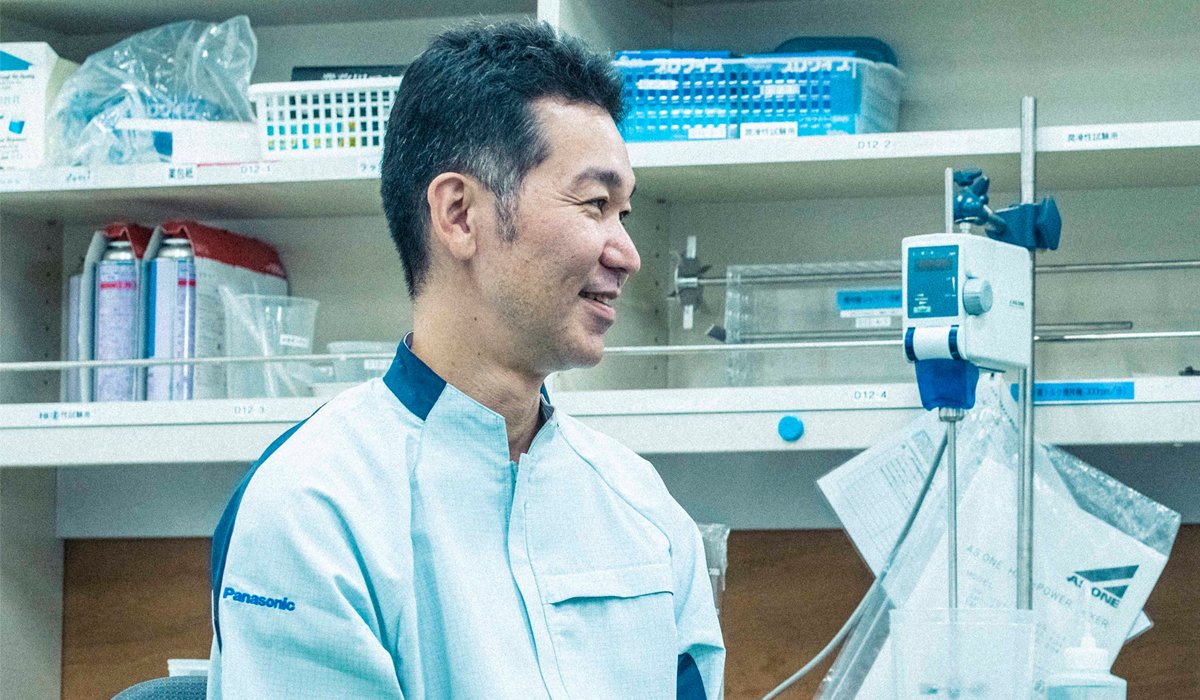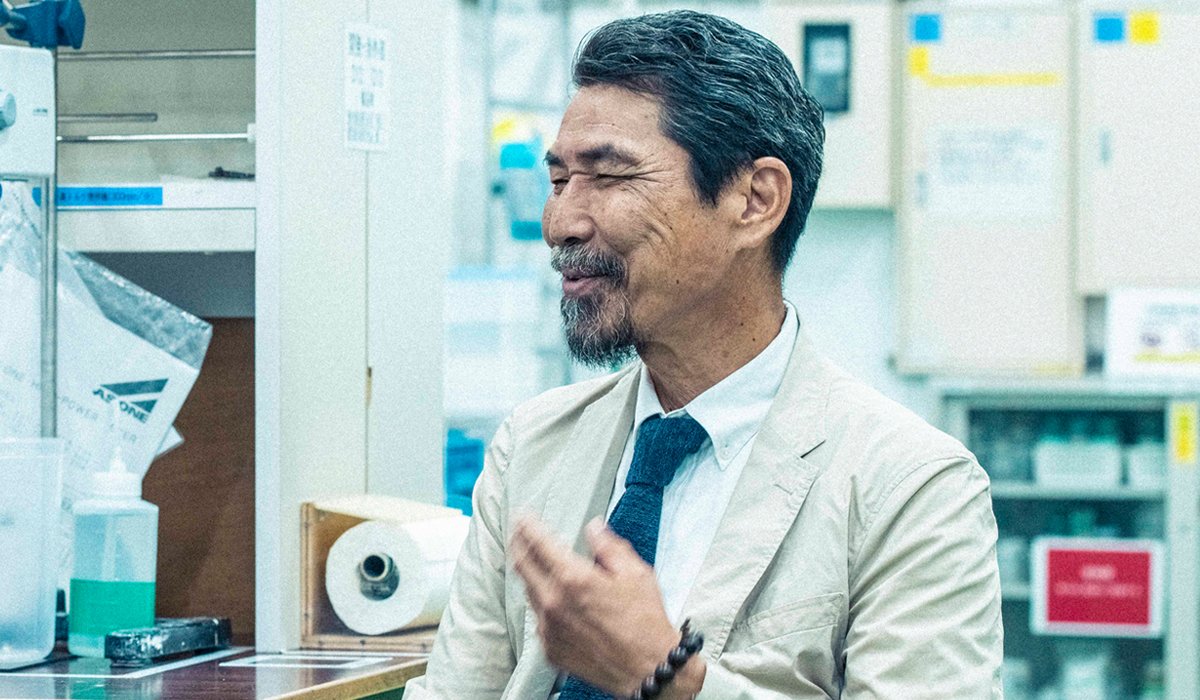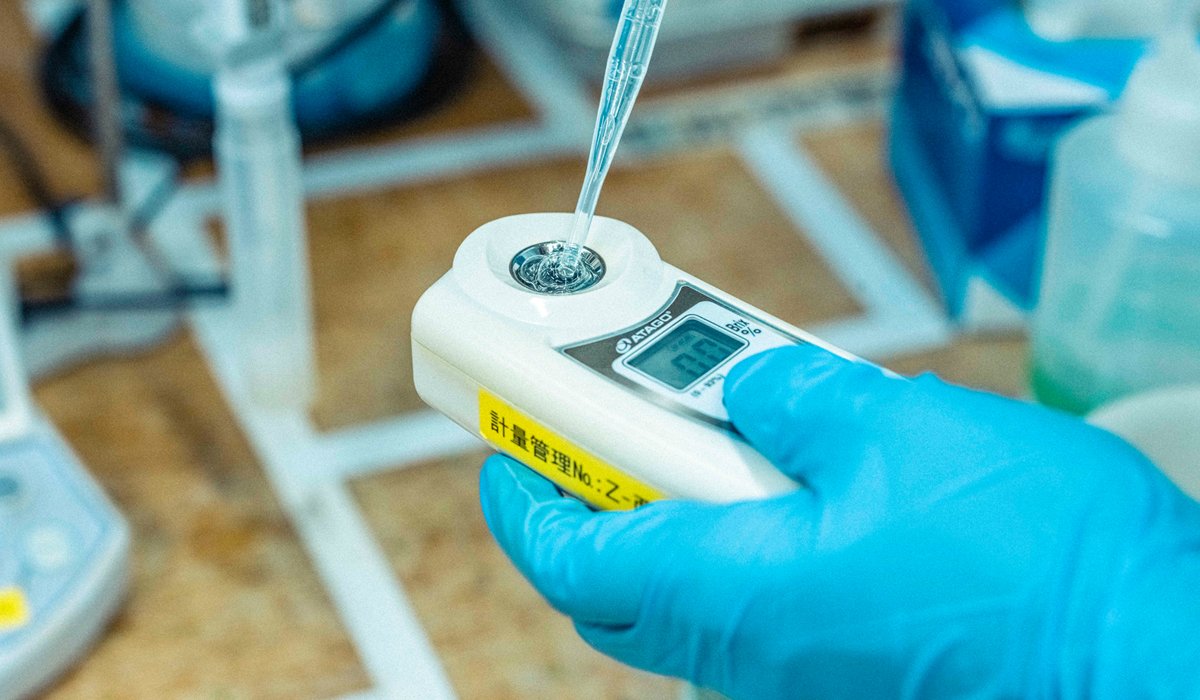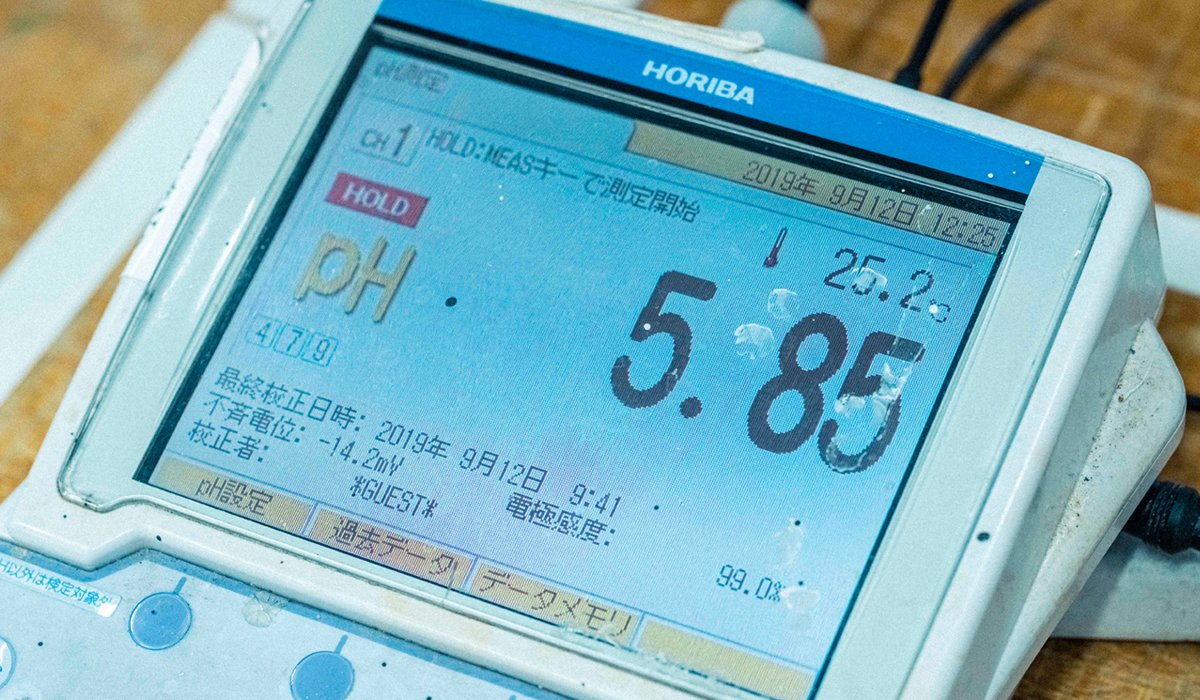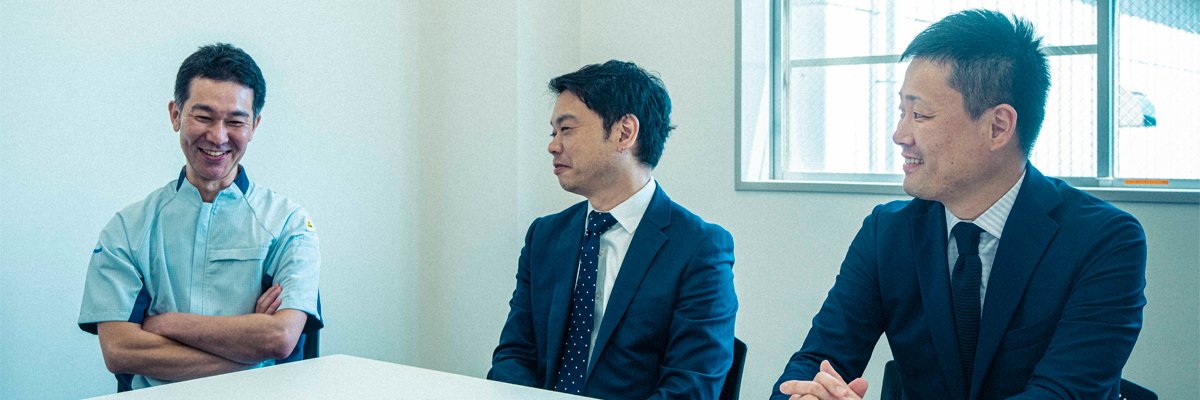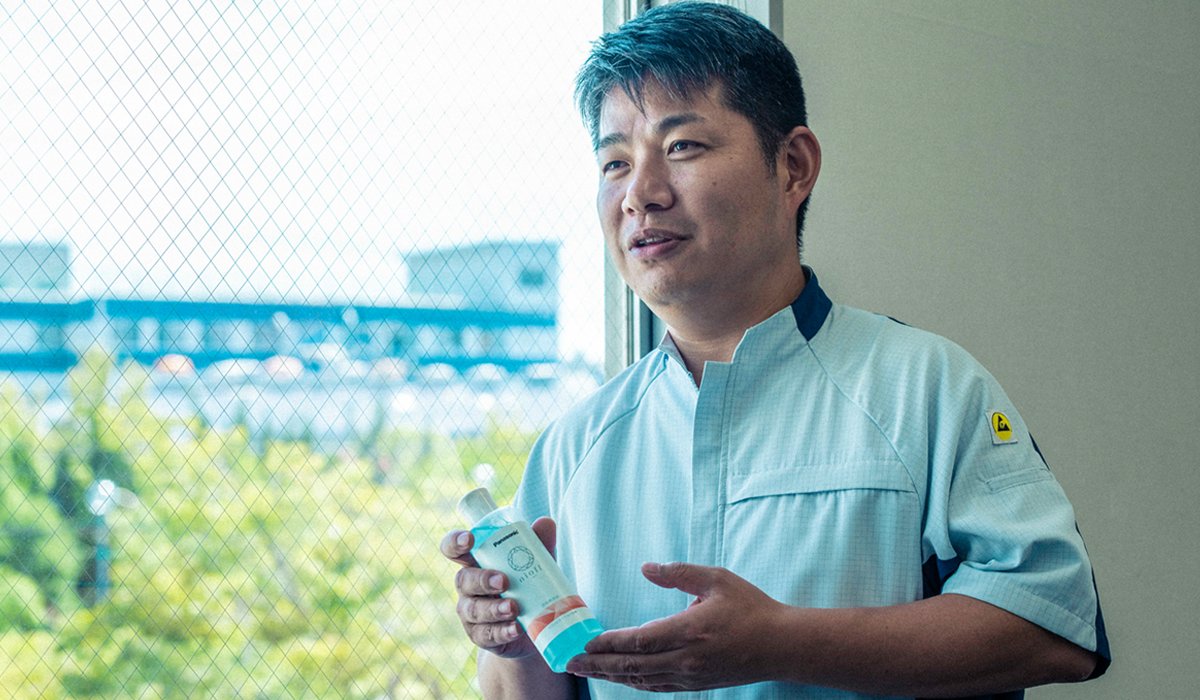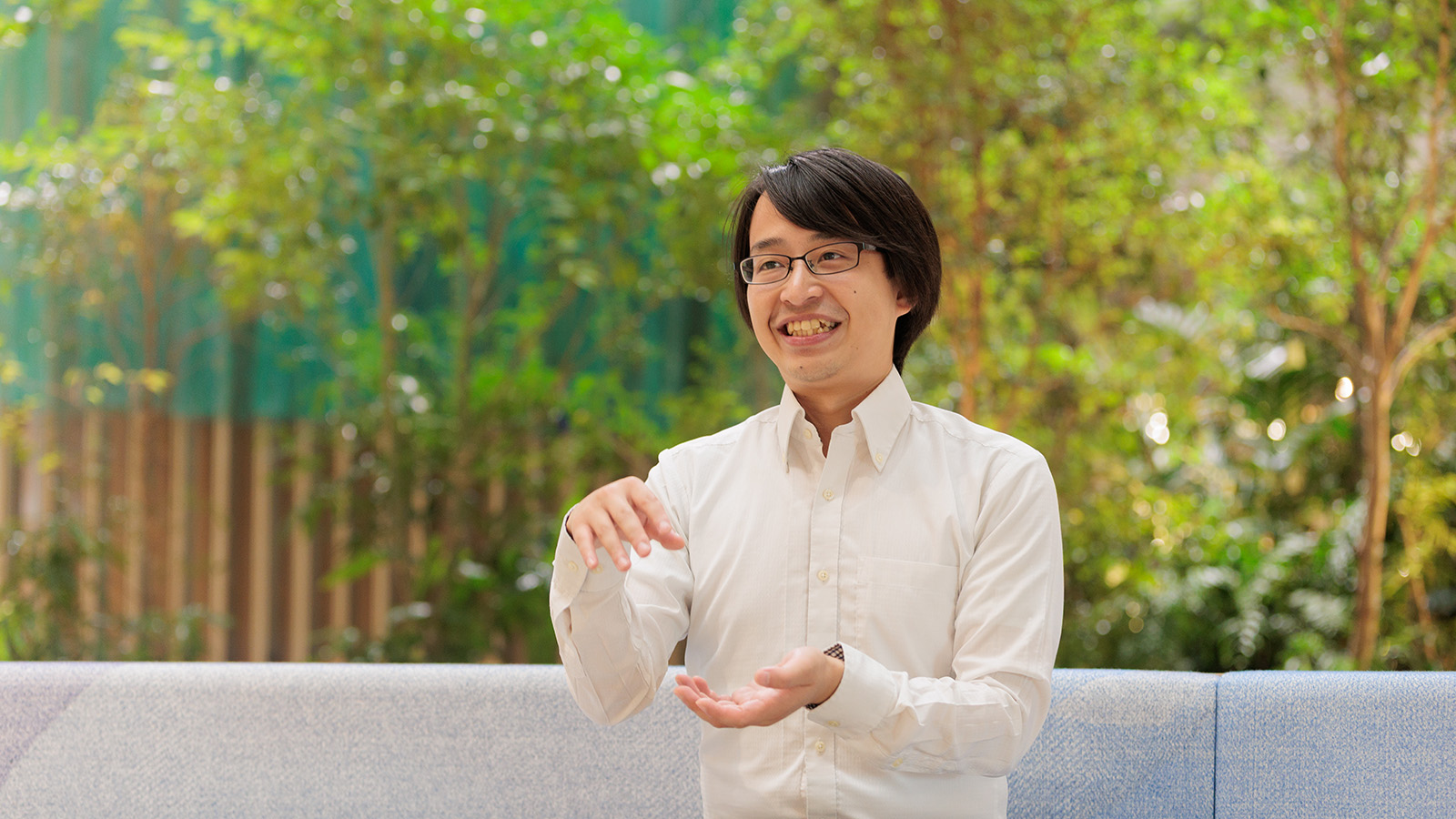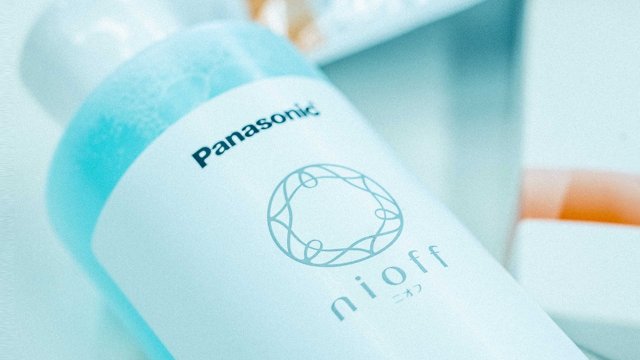
Ostomates (colostomates, ileostomates, and urostomates) live their lives with trepidation. They carry a pouch attached to a stoma (opening in the body created through a surgical procedure), from which bodily waste is discharged, and are constantly worried that odors may fill the bathroom and leak out to the surrounding area when cleaning their pouch. Nioff Deodorant Lubricant was developed exclusively for stoma bags and eliminates more than 99% of odors from bodily waste after one minute of use. Its high lubrication performance prevents the adhesion of waste to the pouch, which is usually replaced every few days, and keeps it clean. Helping ostomates keep a positive frame of mind by providing solutions, Nioff Deodorant Lubricant "connects people with a caring mind."
Nioff Deodorant Lubricant
Nioff Deodorant Lubricant succeeded in modifying the molecular structure of odors through a chemical reaction induced by copper ions rather than covering them up with fragrance ingredients. In order to eliminate ostomates' worries, Panasonic Chemical Co., Ltd. utilized the technical strengths that it developed through B2B business as a material manufacturer.
Talk 1: Fumbling Our Way toward Breaking New Ground
Odor Elimination Technology Accumulated in the Background Was Waiting to Bloom
Takahiro Nagayasu [Product planning] (left) and Yasuo Shiba [Design] (right). Members of Panasonic Chemical Co., Ltd.
Taking on the challenge for the healthcare arena and responding with reliable effects
What encouraged you to develop healthcare products?
Nagayasu: We are a chemical firm whose business mainly consists of manufacturing paints used for building materials. We supply chemical compounds used in Panasonic Group manufacturing sites in drums. However, the anticipated shrinking of the housing market has been one of our big concerns. In order to ensure continued growth in the future, we launched the development of products under our own brand name, which have potential for growth.
Shiba: In 1985, I took part in the production of deodorant filters for air purifiers for the first time and have been involved in the manufacturing process of the company's various deodorizing products ever since. Further, we accumulated know-how through the production of concentrated solutions for a major manufacturer's deodorizers and were confident with our odor elimination technology. Nonetheless, we had no experience whatsoever in the sale of B2C products, let alone their development. We repeated the trial and error method throughout the process ranging from product planning to sales.
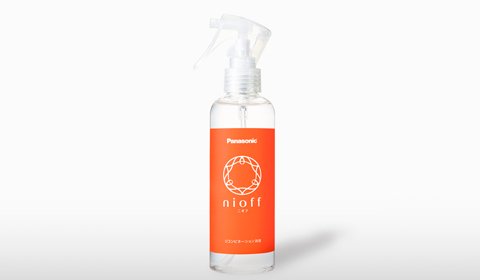
Nioff Deodorant Spray provided a topic of conversation with its high deodorizing performance. Ostomates longed for products designed exclusively for stoma bags; therefore, the release of Nioff Deodorant Lubricant was truly a significant achievement.
Even though they could quickly come up with a rough formula, it was not an easy task to find the optimal solution. The team experimented on various patterns by changing the concentration and combination conditions.
Nagayasu: Our first in-house product was Nioff Deodorant Spray, designed for use by healthcare and nursing care professionals and released in 2015. Originally, it was only marketed in the Kansai region; however, backed by the high support of nurses, we decided to promote the product nationwide shortly after.
Shiba: I was also involved in the design of Nioff Deodorant Spray. Senior management encouraged us to give it a try.
Nagayasu: In the midst of such efforts, we learned that there are stoma care specialists called certified wound ostomy and continence (WOC) nurses. WOC nurses working in a field involving odors are respected within the hospital. Considering that trust gained from such specialists will help establish our brand image in the healthcare field, we searched for existing problems to be resolved and eventually ran into odor issues troubling ostomates.
Applying our experience in the development of deodorant sprays to the development of a new formula
What were the problems troubling end users?
Nagayasu: I was personally shocked to learn that grandchildren avoid close contact with their ostomate grandparents because of odors. Furthermore, this is a common occurrence among ostomy patients, causing many of them to hide their physical status even from their family members and close friends due to fear of being shunned. We wanted to eliminate such fear rather than just removing odors. Therefore, we launched product development based on the concept "Connect people with a caring mind."
Even though fragrance ingredients can mask odors, they only serve as a stopgap measure and odors will come back. If a product contains fragrance ingredients, then unnecessary substances are also included. Alcohol is highly irritating to the skin, and paraben used in cosmetics is subject to regulations in Europe and the US. Such product is not appropriate if we are considering creating products designed for professional use with the aim of contributing to medical frontlines and consequently promoting global development.
Shiba: At the time, only two types of overseas brand deodorant lubricants were distributed in Japan. After checking the ingredients of these products, I was convinced that we would soon take over the market (laugh). Although every novel approach has already been attempted in terms of product development in the huge deodorizer market, I had an intuition that a niche market like deodorant lubricants still had room for technological development.
Deodorant lubricants marketed at the time still showed room for substantial improvement. From my experience in the development of Nioff Deodorant Spray, I quickly came up with a formula likely to be far more effective than what was available. The analysis of bodily waste odors revealed that 90% was attributable to hydrogen sulfide. Based on this result, we induced a unique chemical reaction, referred to as "deodorization through recombination," in which copper ions connect with odor molecules and convert them into odorless substances. We focused on specializing in bodily waste odors to make it easier for consumers to realize that our product has greater effects than competitors'.
Nagayasu: Since stoma bags are replaced every few days, lubrication that coats the inside of the bag and facilitates the smooth discharge of bodily waste is an important basic element to keep the bag clean.
Shiba: The product needs to provide moderate viscosity and lubricity. Since it is a medical product, the need to consider safety is a given. We paid particular attention to safety when selecting materials, such as substances that can be used for cosmetics and materials registered as food additives.
Nagayasu: We fumbled our way during the design as well as the evaluation process. What happens if the concentrated solution of Nioff Deodorant Lubricant enters the body? What are the relevant laws? We found ourselves out of our element in the uncharted field of medicine. We did not have any evaluation criteria within the company and sought advice from hospitals and partner companies. As a result, we figured out the necessary tests to be conducted to ensure safety.
Shiba: It took six months to complete the basic design and another six months to evaluate the product.
Talk 2: Co-creation Partnership
Unlikely Partnership Even Changed Partner's Mindset
Akihiro Fujimoto, Ostomy Franchise Business Unit Director, ConvaTec Japan K.K. (left)
Yohei Kamon, Ostomy Franchise Marketing Brand Manager, ConvaTec Japan K.K. (right)
What is the optimal solution for usability?
How did the company get involved with ConvaTec Japan?
Nagayasu: Although we were confident of our product competitiveness, our marketing capabilities posed a challenge. Our contact with end users had been limited until then. Therefore, we approached ConvaTec Japan, who is currently acting as a distributor of our products.
Fujimoto: I had a strong image of consumer electronics when it came to Panasonic. In the beginning, it was hard to believe that they were actually moving into our field of business, which is a niche market. However, their commitment to safety was on a different level, worthy of being called a global corporation. Also, when we referred to the Panasonic brand during business talks at hospitals, clients showed greater interest, revealing a positive and favorable impression of the company.
Kamon: Mr. Nagayasu's pleasant personality greatly facilitated the collaboration. Above all, in our market, the high deodorizing performance of Nioff Deodorant Spray was highly rated by healthcare professionals. I could not help myself asking for immediate commercialization of a lubricant designed exclusively for stoma bags, which incorporates such high deodorizing performance and technical strengths.
Checking the concentration of active ingredients with a refractometer. The high deodorization effect of Nioff Deodorant Lubricant has been proven based on evaluations by third parties. The product has an effect on target odors such as those emitted by bodily waste, enabling a significant improvement to the quality of life.
Significant changes in pH affect the product's deodorization and lubrication performance. In order to ensure product quality, inspections using a pH meter constitute an essential part of the production process.
Fujimoto: I can explain the background to this story. ConvaTec has long dealt in stoma bags in the Japanese market as a foreign medical equipment manufacturer. However, our lineup of optional accessory products was scarce and did not include deodorant lubricants. The oligopoly market was driven by products sold by two other foreign companies, and we somehow wanted to change the status quo.
Nagayasu: ConvaTec Japan connected us with many medical professionals and end users during the development process, whose feedback helped evolve the product. Further, the company has sales networks in Japan as well as more than 100 countries worldwide, which was appealing when considering future overseas development.
Improving the product together with a like-minded partner
Did you make any changes to the product in response to feedback from end users?
Fujimoto: We both pursued usability. Many ostomates have contracted cancer and encounter cases where they have difficulty with daily life activities, such as hands shaking due to the side effects of an anticancer drug. Stoma bag users are over 60 years old on average. Likewise, it is difficult for them to keep a stoma opening and discharge port always clean.
Kamon: Customer evaluations for conventional products ranged from the container being unclear and hard to see inside to the cap being particularly hard. These products were likely to have room for various improvements.
Nagayasu: First, we contacted circles of younger female ostomates in an attempt to collect feedback on the products' non-user-friendly features.
Kamon: In particular, when we discussed product improvement requests as one of the topics, opinions were offered, such as "the bottle is too hard to pour the lubricant," "I cannot tell the remaining amount," "the cap is too hard to open," and "the liquid spills easily."
According to Nagayasu (far left), "Our mutually complementary relationship enabled us to move forward without hesitation."
Nagayasu: This meeting revealed our challenges. We decided to use a clear bottle to allow easy checking of the remaining amount and added scale marks for one dose. The nozzle is designed to easily stop pouring and prevent spilling. In order to allow the smooth opening/closing with one hand, we selected a light yet easily lockable cap.
Kamon: In consideration of drug side effects and user demographics focusing on elderly people, the bottle cannot be too hard, making it difficult to pour, or too soft where an excessive amount comes out. After some trial and error, we created a bottle with chamfered edges that nicely fits a user's hand.
Fujimoto: The Nioff brand is already highly recognized in the market. In the beginning, we were jokingly telling ourselves to aim for a 30% market share in three years, but it has become quite a realistic goal. In the first year, we sold double the targeted figure with a market share topping 10%. We are now in our second year, achieving phenomenal 130% growth. What changed most was the sales team's mood. A new product that we can proudly promote has created a positive atmosphere in the sales office.
Nagayasu: We were genuinely blessed with a good partner. ConvaTec Japan worked hand in hand with us from product package design to promotional campaigns, which helped us get off to a swift start. I believe that the demand seen in Japan yields possibilities for the overseas market. I would like to help as many ostomy patients as possible enjoy life via ConvaTec's network.
Talk 3: Thoughts for the Future
Further Explore Product Usages. Value Is Generated by Taking on New Challenges
Nioff Deodorant Lubricant eliminates more than 99% of odors from bodily waste after one minute of use. This is providing new value by allowing ostomy patients to stop worrying, rather than simply removing odors. As a member of Panasonic, I was encouraged to learn that the project concept "Take a step forward with a positive frame of mind to stand close to patients," in which team members believed, resonated with ostomates.
Our success in formulating an effective formula, which can be protected under patent (currently pending), is solely attributable to the accumulation of material combination design and space deodorization assessment technologies. We inherited our predecessors' can-do spirit and achieved objectives in the form of the Nioff series. For instance, we adopted a safe material that is also used in food to achieve a moderate lubrication performance. It is as if a chemical reaction was observed in Nioff products when familiar elements cultivated over time are repurposed.
Hospitals play a big role in the introduction of stoma bags and accessory products to patients. Many WOC nurses recommend patients to switch over to Nioff Deodorant Lubricant after experiencing its effects, facilitating a steady sales increase. This proves that team members are on the right track. However, the product remains in need of further development. There is no future for a product if its usages have not been thoroughly examined. Therefore, we will continue working on product improvement.
Several people in healthcare, nursing care, and other fields are troubled by and suffer due to odors. I believe that much can still be done. We will make efforts to understand people's problems and concerns and continue to take on challenges.
# # #
- Disclaimer:
- We would like to note that Panasonic Newsroom is not a place to address personal Customer Service issues. Even though this is not the forum, Panasonic is always eager to resolve your concerns. Our local customer services contacts can be found at Global Support or you can see our list of Social Media Accounts to find the right channel for your queries and concerns.

